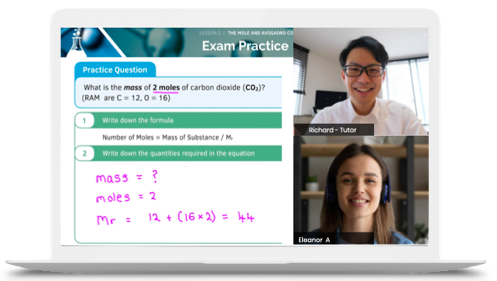Top 5 Mistakes: How NOT to Revise GCSE Maths
Written by Dr John Adam for Medic Mind
Meta
- Description:
- Keywords: GCSE Maths, mistakes, revision
While there’s no one-size-fits-all approach to revising for GCSE Maths, there are definitely some revision mistakes to steer clear of! Here are our top 5 biggest mistakes to avoid in your GCSE Maths revision:
- Avoiding past papers
- Revising until you’re just ‘OK’
- Doing too much of the same thing
- Looking for shortcuts
- Not starting soon enough
1. Avoiding past papers
There are only so many questions you can be asked based on the GCSE Maths syllabus. Once you understand the topics in the GCSE Maths syllabus, it’s simply about applying the relevant concepts to the questions in front of you. The best way to get used to the questions you might be asked in the exam is to practise questions that have been used in previous years, and these are all available online!
Remember, it’s not only about getting the question right or wrong when you do past papers. It’s just as important to think about where you went wrong or why you got the question right. Even if you did get the answer right, consider if you showed your work well enough to achieve full marks on the question or if there’s a way you could have been quicker! This is how you hit the top marks rather than just a passing grade.
1-1 lessons tailored to you. Book a FREE consultation today!
2. Revising until you’re just ‘OK’
Lots of GCSE Maths students revise a concept until they’re ‘OK’ at it, and then move on to greener pastures. If you’re short on time there’s nothing necessarily wrong with that but, if you have time, you will fare a lot better if you revise until you can’t get it wrong. While this may seem like a daunting task, if you spend just half an hour each night, or an hour every other night, doing past questions, you will see your confidence improve much sooner than you think!
Theory is also a crucial foundation to revision. Along with practising past paper questions, make sure you understand the theory behind each topic and question type. You can summarise the theory behind different topics on flash cards or posters, so you can review them regularly in a visual format that is easier to digest than a textbook.
3. Doing too much of the same thing
Everyone has strong topics that they understand better than others. The common mistake here is to focus on these topics, because you do better at these practice questions and this makes you feel good. While it’s difficult, you need to push yourself to revise the topics you are weaker in – this should actually be a higher priority, because it is likely that these are the questions where you are losing the most marks!
You may find yourself getting distracted when doing these more difficult topics, because you aren’t as naturally motivated. You can overcome this by easing yourself into it. Start by practising a tricky topic for just 15 minutes, then move on to a topic you are more confident in. Next time, you can increase your time to 30 minutes, and then to an hour. Make sure to always take breaks from difficult topics by doing some easier ones in between, so you can keep your motivation up. There’s no point forcing yourself to do your weakest topics for an entire day, and then feel burned out and demotivated by the end.
4. Looking for shortcuts
Here’s the rub: GCSE Maths can take a while to get good at. There is no quick fix that will take you from just passing to a grade 9 overnight. The way to get better at Maths is by practising, and the best way to do that is by doing past papers. Stay focused and remember that your hard work will pay off in the long run!
5. Not starting soon enough
Revision should start from the beginning of the course. People often think that revision is going back over topics you didn’t get, but really if you do it right it can be making sure that those topics are firmly in your head from the day you’re taught them. If you spend a little extra time every day from the first day of teaching, when it comes to exams you’ll quickly find that all those concepts are already in your head and you don’t need to do so much to get up to the top grades.







Still got a question? Leave a comment
Leave a comment